|
This one set on my TBR list for a while, and in all honesty, I maybe should have left it sitting there. But then I’ve been a fan of Lebbon for a long time and was curious what he’d been up to. Apparently, this climate disaster of a novel. Which objectively isn’t a disaster of a novel, but it does leave a lot to be desired.
Outside of occasional odd word repetition (which should have been dealt with in editorial), Lebbon is actually a very good writer. It’s what attracted me to his books in the first place. Literary, in my books, is the best horror, and Lebbon goes for literary. Character driven, well described, all that. What’s missing here is on the plot side of things. Droughts had turned a significant swatch of North America into a desert. It could use some rain. And, conveniently enough, the is a Rainmaker available. Only he doesn’t do that anymore and has done all he could to stop his daughter, who intertied his gift, from doing it too. As it turns out, when one makes the rain, they bring down more than just water. No idea why. None is this is really explained. The Rainmaking thing isn’t really explained either. The author chose to focus on the actual play-by-play of the chase (two chases, technically) that’s at the heart of this novel. It unravels in almost real time from multiple perspectives in minute detail. Lebon is good on detail, but at some point it becomes glaringly obvious that the entire novel is just people driving and shooting in the desert. It overrides everything, even the characters. Not to mention, the multiple perspective thing is drastically overdone with a dizzying amount of switches. People, tenses, etc. It’s way too much. It’s almost like there’s all this descriptive writing and narrative trickery to distract you from how thin the plot actually is. So, overall, it reads easily and quickly and is technically accomplished, but doesn’t really engage. Good writing goes a long way for me, but this was likely one of my least favorite Lebbon books. Interested to see how he does on the next one, where he goes from dust to snow. Thanks Netgalley.
0 Comments
Some people go for zombies or vampires, but one of my all-time favorite themes for scary stories are movies. Silver Nitrate, baby, all the way.
So I was very interested in reading this book, but Netgalley didn’t have the right format, and then there was a wait at the library …and now I finally read it. And I don’t understand what all the negative reviews are about. Burn the Negative is fun. It’s fun in that popcorn, slasher way. Very dynamic, it reads like a movie. The author, much like his protagonist, has spent plenty of time reporting on genre movies, and it shows. The book is a thoroughly enjoyable ride loaded with movie references to nerd out over as we follow the story of a former child star who returns to LA after three decades away to cover the remake of the movie that ended it all for her (and so many others), only to find out that the nightmare she thought she left behind is still there, waiting for her., impatiently and deadly. Cue in the bodies and suspense and slapped-together investigation as she follows the trail of movie stub crumbs back to the source. Yeah, the ending was a bit of a cheat for conventional slasher fans, but the book was overall too entertaining to fault it on details. And read very quickly, too. I may even pun and call it winning ;) Recommended. Nice place ... But is it haunted? Now, there’s the question, the notion that’s been beaten to death, revived, and beaten to death all over again in genre fiction. It’s a cliché that can be measured in square feet. And it comes with its own real estate listing. A couple buys a place, idyllic on the outside, nightmarish on the inside. Soon, strange things begin to occur. Who’re you gonna call? Yes, this book even has a ghostbuster, of a sort. The main plot revolves around all those tried-and-true clichés but it is objectively a pretty decent take on them. I’ve been reading Coppel for a while now, not so much because he’s the best thing out there, but because he’s so reliable. Mediocre but reliably so, you always get exactly what you expect with him, pretty much. This book is no exception. In fact, it’s better than most of his work. So much so, I'm going to round up my rating. While not literary per se, his writing is very nicely paced, realistic with details, and humorous in banter. The plot is basic enough to explain: a family moves from West to East coast, gets a picturesque property in Northern Virginia, commuting distance to DC, and starts nesting. Only their next keeps getting weirder and weirder. You think you want extra square footage? Sure, yeah, but you wouldn’t want a self-expanding place to live it, that’s just creepy. So what pushes people out? What’s enough and what’s too much? Would a metal bed with restraints in the attic do the trick? No? Well, how about an antique chamber pot, poop and all? Fireless smoke? Okay, okay, here’s a doozy … what about an unshakable certainty that you and your family are not alone? Read on and find out what the family in the book does. It’s a fun, quick read. Recommended for genre fans. I'm surprised the title made it through the PC police. It's apparently offensive, more in some forms than others. One day, it may have to be redone as Madness. Until "madness" gets done away with, too. And then what, one wonders? The Future of Geography: How the Competition in Space Will Change Our World by Tim Marshall12/1/2023 I love Tim Marshall’s books. I’ve probably said this before but … What that man doesn’t know about geography is likely not worth knowing. Which is to say, Marshall knows a LOT about geography and has written plenty about it. So much so that he might have exhausted terrestrial matters, because in this book he takes to the skies.
Space being the final frontier, it’s a natural progression. People have spent centuries disputing and fighting over areas of Earth and eventually, they will take their squabbling into space. As technology progresses and more money is being poured into research and development, governments and private companies are looking to increase their presence in the outer space. The current laws governing these matters and vague and outdated, so it can be either a free-for-all or yet another source of contention, but nation after nation, people are reaching for the stars, whether for scientific, political, or purely pecuniary reasons. Okay, let’s be honest, it’s mostly the latter. From space retreats to tourism to exploiting other planets for their resources, people want to monetize space. It’s in the language itself, when the conversation turns to colonizing space. I mean, words like colony colonialism, colonization don’t particularly carry a lot of positive associations. Yet, it’s an inextricable part of the past that echoes into the present, and one day will likely feature in the future. The question is who gets there first and how. And that’s what this book is about, basically. And Tim Marshall does a terrific job of walking you through the current situation from contextualizing it through the past examples to playing out possible space war scenarios. Marshall writing style is intelligent, erudite, and rather funny, resulting in a nonfiction book that’s as engaging as any work of fiction, but smarter than most. It educates while entertaining and makes you look up to the sky with wonder from a more informed perspective. A great read. Recommended. Thanks Netgalley. Jacquotte Delahaye may or may not have existed. That has never stopped anyone from spinning a good yarn. Or in this case an average yarn but loaded with enough pirate pizazz to make you overlook its shortcomings. Almost.
I am being too critical? I don’t want to be. I LOVE pirate stories. And female pirates are a delightful rarity I’d read about any day. But then as an author and a reader, I am rather fond of well written books, and it is impossible not to notice that this one could have used some more …well, at least editing. It stands to mention here that I read a Netgalley ARC, so it may not be the final version, but then again Simon and Schuster usually provides perfectly print-ready ARCs. I mean, this book has been edited in a sense that there are no typos and grammar snafus. But there are a lot of repetitions, sentences like so-and-so felt they could not find the words that felt right or clunkers like father’s mother’s tongue. Or usage of the word Lothario in 1655, just ever so slightly nearly 50 years before it originated (based upon a character in The Fair Penitent, a 1703 tragedy by Nicholas Rowe, if you care, since the author, editor, and publisher do not). This book had obviously taken a lot of work and research. It just needed more. Also, it’s no ballad. Not poetic, no musical accompaniment. It’s a saga or a folk tale or a legend, but it isn’t a ballad. But then, this isn’t the one for details or definitions. The thing is, it’s such a fun story. It has everything you want it a fun pirate book, all kinds of adventures. But the writing is so notably basic. Short simple sentences, nothing to dazzle you. It reads like a book sold on a premise rather than style. And of course, it would sell: this book and its author check every minority representational box there is. I mean, it probably sold just based on “gay pirates.” For those who did not get enough with “Our Flag Means Death”, this is a real treat. Except, OFMD is cleverer, funnier, and has Taika Waititi. This novel has a very young, very tough (almost unbelievably so) protagonist who gets a LOT done in a very (almost unbelievably so) short time. Also, just so we’re clear: I’m all about representation in fiction. I love it. I think there should be more of it. Definitely more gay pirates of all races. I am absolutely all for it. I’m just saying one shouldn’t be so dazzled by it as to overlook mediocre writing. Mind you, it is still fun. Oodles of fun. While dramatic scenes are a mixed bag, the action ones are great. It’s all wham, bam, kill it, ma’am. So overall, the book is very entertaining. Someone should probably go make a movie out of it right now. It’ll probably make the story even less realistic and who knows what that writing will be like, but hey … pirates! We may never know if Jacquotte Delahaye existed. But you kind of wish she did, don’t you? And now that there’s an entire book imagining her into existence … well, that’s sort of like a life, isn’t it? Books are magical like that. Don’t go in expecting fine literature, just have fun with it. Thanks Netgalley. Being a huge fan of Alderman’s work, I was very excited for her new novel. It took me a moment to get into it, but once I did, I struggled to put it down. It’s a hefty volume, but then again, no one’s ever said the future would be light.
In fact, in Alderman’s vision, it is quite dark, basically apocalyptic. And the three mega-moguls who more or less own the world, do nothing to improve it, but are quite interested in saving their own skins and surviving no matter what. While those closest to them have a very different idea about …well, the future. And so it goes. The epic power struggle. Who will win, morals or money? Read the book and find out. Here’s the thing with this novel for me: it read long but amazingly well. One of the best books I’ve read all year, easily. Stupendously clever. Alderman is definitely carving out a niche for herself in science fiction/dystopian genre, first with the power and now this. I love clever books. There are enough dumb ones out there to make you appreciate it. Alderman has terrific ideas, and her writing is superb. The worlds she writes come to life three-dimensionally and stunningly. But then, after the book is done there’s some distance/perspective, you realize that the grand concept here is actually rather simplistic or at least reductive. It casts the general population as wildly dumb/gullible/malleable/manipulatable/etc. which …well, isn’t far from the truth. But the novel’s solution for it is … kind of basic. And the timeline for it isn’t all that realistic either. It seems that for a novel so very clever with details and logic and rhetoric, it would come up with something a bit more sophisticated then “tweak the algorithm, tweak the people, save the world” sort of thing. And Alderman actually seems aware of it in the end, going by the very last chapter. It’s like a dark pessimistic/realistic cheery on top of a hugely optimistic, pro-environmental, pro-world message. But the thing is, you are not really aware of any of that while you’re in the novel (and what you do notice, you don’t much mind), and that’s purely because of Alderman’s skill as a writer. So it is an enormously engaging, enjoyable reading experience. Albeit one with arguable logistics. As opposed to The Power, which was sense through and through. Either way, recommended. Thanks Netgalley. I haven’t been reading much science fiction lately and striking out with the few I have, but this slim novel was a welcome reminder of what the genre can do.
In a world reshaped by climate disasters, off the coast of West Africa, the population is surviving in enormous, socioeconomically striated towers. Three very different characters from different levels find themselves coming together to investigate what initially seems as a breach and turns out to be so much more. Dystopia weaves around mythology to potentially forge a new path for a world that has lost its way. You may call them dreamers, but they are not the only ones. For what is the world but a dream collectively agreed upon. And what worth does that agreement hold if it cannot be revisited and rewritten when change arises and new perspectives are offered. A striking, dare I say, poetic worldbuilding takes this book a long way. But then it is also exciting, character driven, and compelling in the way that’ll have you turning page after page toward its resolution. A thoroughly enjoyable read. Recommended. Thanks Netgalley. Much like its predecessor, this is a very clever book. Only wherein The Last Equation went in for math, The Stars is all about quantum physics. It’s as fascinating as it is dizzying, but ultimately rather exciting.
Much like its predecessor, this is essentially a murder mystery, albeit one of the highest literary order and one wrapped in science. One might argue that it is rather wrapped in science, but for me it was a plus. I’m tired of formulaic mystery thrillers that populate the market these days, and it’s a pleasure to see someone deviate from formula. Especially when that someone has the chops to do it, as Nova Jacobs clearly does. The setting is the character here in a huge way. It was definitely what attracted me to the story. Switzerland, Geneva, CERN laboratory. And a writer of Jacobs’s skill brings it all to life with transporting vividness. Much like its predecessor,. the story took a while to get going. It’s dense, heavily scientific. You have to appreciate those thing,. or you won’t care about it. If you do, though, it’s an excellent puzzle of a tale that’ll surprise you until the very end. Beautifully written, character driven, and (yes, I’ll say it again because not enough books are these days) so clever, this was an enjoyable read. Not the lightest or the easiest and somewhat slow, but ultimately rewarding, this novel takes you to a different place and makes you reconsider everyday things through a different lens. What more can you ask for? Recommended. Thanks Netgalley. Just when you thought all that could be done with the haunted domicile of some sort scenario had been done, comes Barzak’s novella and shows you that even all-too-familiar themes can excite and engage if done right.
My favorite thing about this story was the writing. So lovely, so lyrical, it draws you into the tale, the place, the time. For those who like me enjoy their scares literary and their literature scary, this fit the bill just right. Is the place haunted? You bet. But the best part is, the story itself is haunting. You won’t want to put it down, and at just 100 pages, you won’t have to. Recommended for genre fans of discriminating tastes. Thanks Netgalley. I like a good cult story. So much so, I’ll even give a random self-published kindle freebie a try. And in this instance, it turned out surprisingly good. As in, the quality of writing and presentation was well above and beyond the typical random self-published kindle freebie. Kudos to the author.
The writing is what drew me in, strong, competent, engaging. There is definitely a cult at the center of this story, too. A focal point of the narrative, really. Overall, the novella is creepy and unsettling in all the right ways. I am surprised by the low ratings and reviews on here. In my opinion, the book deserves more. Objectively speaking, though, it is moodier and more cerebral than most genre fans go for. A lamentable fact that. But anyone looking for a compelling, dark quick read on a literary side of the genre spectrum, check this out. Recommended. |
AuthorWrite something about yourself. No need to be fancy, just an overview. Archives
December 2023
Categories |
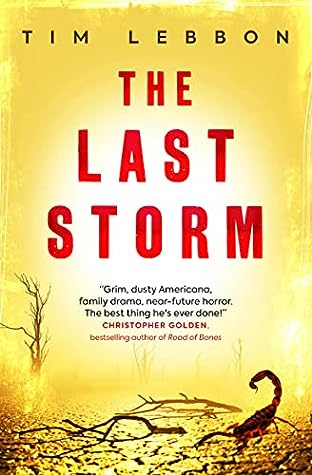
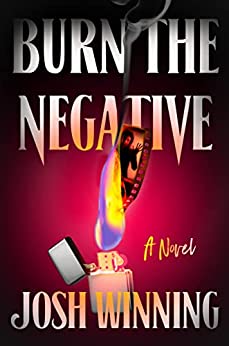

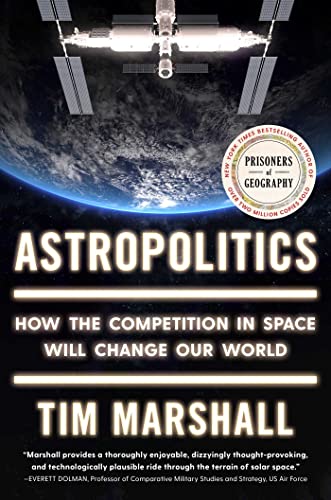
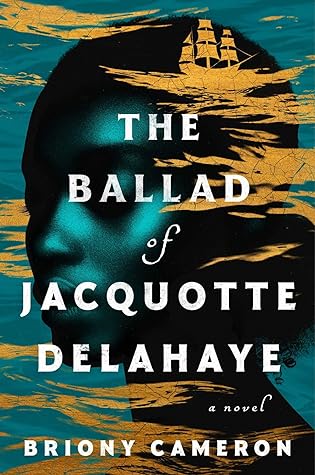

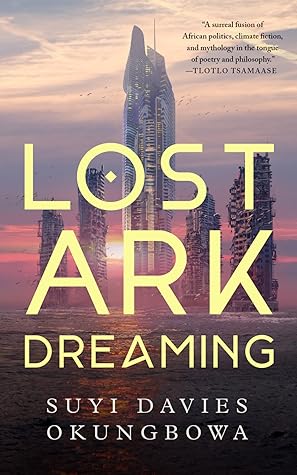
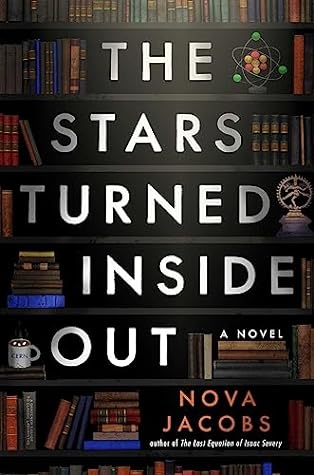
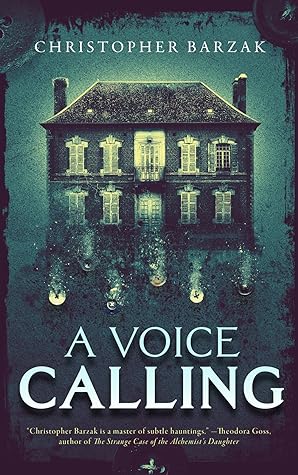
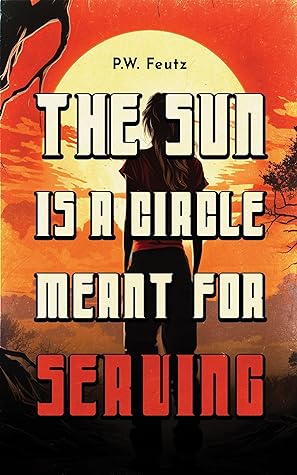
 RSS Feed
RSS Feed
